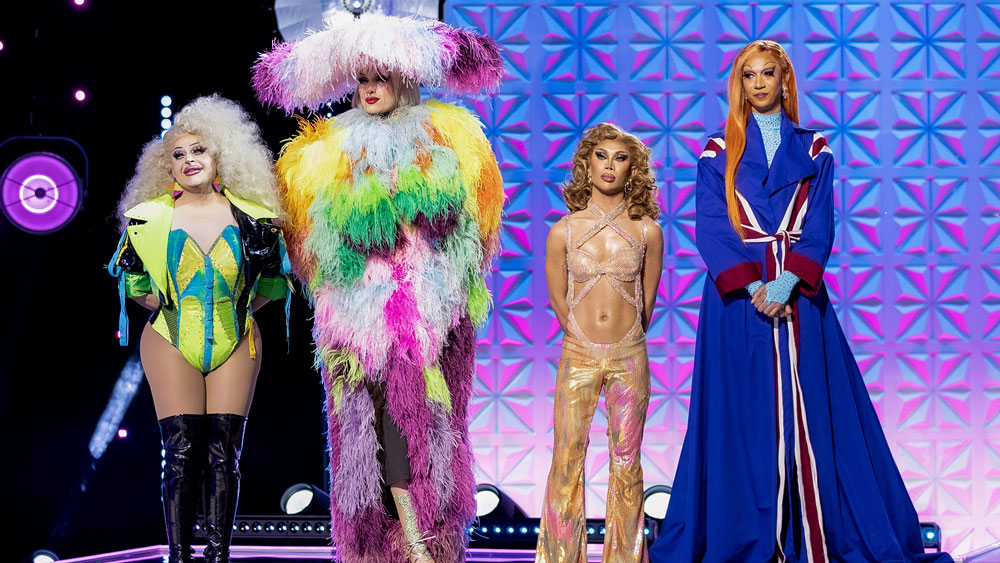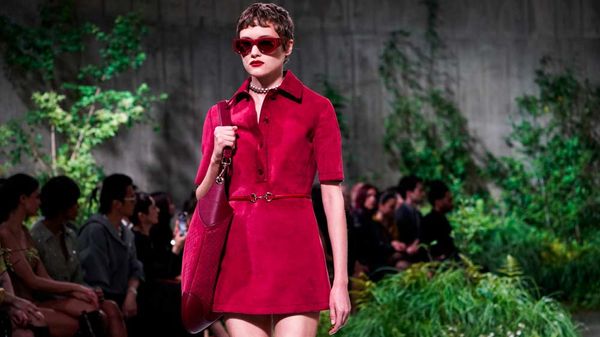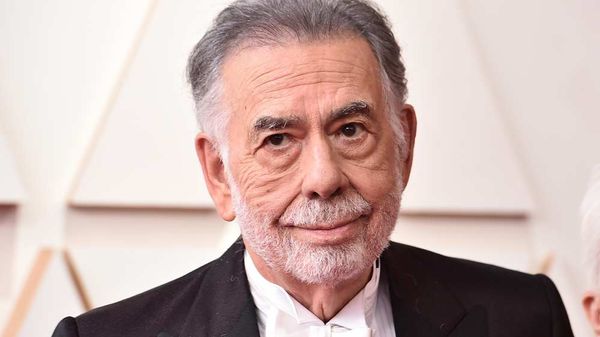May 20, 2011
The Topp Twins - From New Zealand With Love
Kevin Mark Kline READ TIME: 4 MIN.
A huge hit at last year's San Francisco International LGBT Film Festival, The Topp Twins: Untouchable Girls has beaten the odds and is arriving tomorrow at a theatre near you. Leanne Pooley's folksy doc unravels the only-in-New Zealand phenomenon of twin, yodeling, country-singing lesbian sisters Jools and Lynda Topp. Raised along with their gay brother in their island nation's rugged cattle country, the Topp gals started busking for giggles in the early 1980s, leading to a career that has no clear American counterpart. The film switches from chronicling their near-icon status with gently funny spoofs of New Zealand male and female archetypes, to serious episodes of anti-nuclear and pro-queer demos.
Encountering the Topp Twins in person is a joyful if disorienting journey through time and space. Imagine sitting upstairs in the 1920s atmosphere of our beloved Castro Theatre and chatting with identical twin sisters who are fiercely political - as the film lovingly details, they have a ferocious history as anti-nuclear and anti-apartheid protestors - who, at the same time, are so down-to-earth and folksy that you feel you've been trapped inside a New Zealand retro version of the old Arthur Godfrey radio show. Our 35-minute chat covered from their days helping run their parents' North Island dairy farm to their visit with South Africa's Bishop Tutu. We've reproduced snatches of our conversation that touch on the Topps' discovering their unique voices and mission.
Jools Topp: At an early age, we just felt like we wanted to sing, we used to play guitar at home. Once we left home, it just sort of evolved: we'd sing at people's parties, and then we sang at somebody's fundraiser, and then we got a job in a little cafe for all the sandwiches we could eat, and the busking actually came a little later.
David Lamble: Did you take to country music right from the get-go? You can feel that influence in your work.
Jools Topp: It came at a pretty early age. Mom and Dad liked to listen to it, the neighbors up the road had a wind-up gramophone. We used to ride up the road on our horses and listen to the music, and race home on the horses and try and remember it, and play at home on the guitar, it was a fun time.
David Lamble: What about the yodeling?
Jools Topp: Well, Lynda was the yodeler. The first song she yodeled to was "Pent Up Pony," it was a real classic country tune popular in Australia. She went into a bit of a coma when she first heard it, and she just practiced, practiced and practiced, and it was about seven years before she publicly yodeled, it takes that long to learn how to do it. Outside of Switzerland, New Zealand and Australia have the highest rate of yodelers per capita, which is kind of weird, like where the hell did that come from? Now New Zealand has its own style, and it's quite different from anywhere else in the world.
David Lamble: Describe your childhoods.
Lynda Topp: We grew up on a dairy farm, we milked cows pretty much every day. We'd catch the bus to school in the morning, and then when we came home, we'd milk the cows with Dad. We grew up riding horses, feeding hay. One of the great things was there were no stereotypes put on us by our parents at all. If there was a job that had to be done on the farm, it didn't matter whether you were a girl or boy. That was great because early on we learned that girls could do anything.
David Lamble: Describe coming out. I know your brother is gay, too.
Lynda Topp: It wasn't nearly such a big deal for us to come out because when we were growing up, the word lesbian was a word we never heard in the household, nobody talked about it or anything. When we did finally leave home, we actually joined the army. Not because we wanted to be in the army, but because we got a free trip to the South Island.
Once we left the army, we drifted into the city and met this woman, Nancy, who's in the movie, who encouraged us to perform. One night, we decided to have a party back at our flat, and people had never heard anything like it before. We got work from that, but we also met a lot of really amazing women and we realized we were just like them, and that all these gals that we were hanging out with were lesbians. We were lucky: we were in the right place at the right time, and there was a big movement, and we also had that big strength coming from country, so we just fitted right in. We identified as being lesbian a long time before we were ever sexual. So we saw lesbian as being something as a lifestyle rather than just as something as a sexual orientation. We were lucky to get an education in lesbianism before we ever had a relationship. Of course, we found our gals along the way and expressed ourselves in that way, but it was never really a big battle for us. It was pretty heady times. We thought we could change the world, and it started from there.




